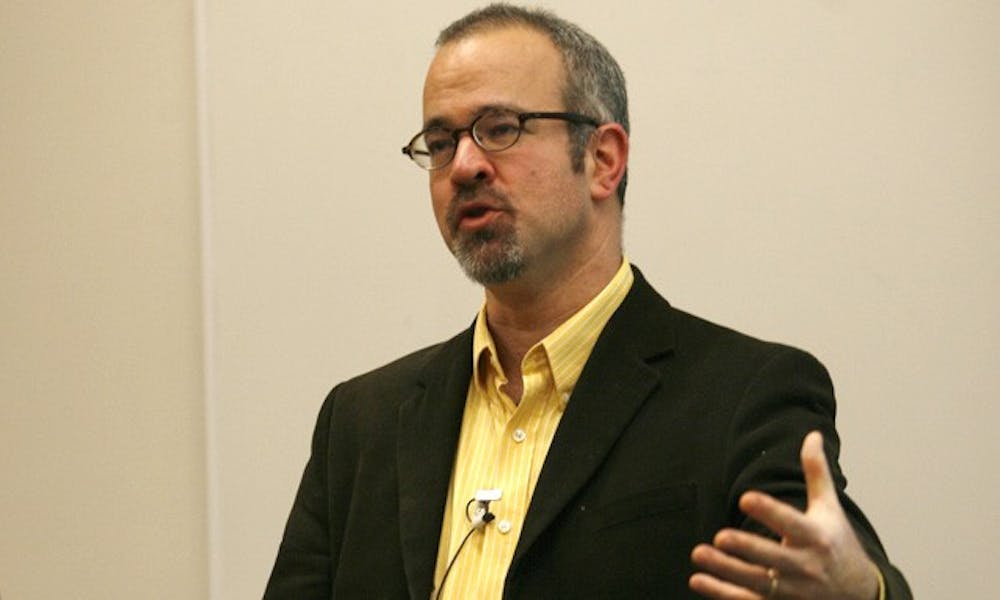It’s flashy, it’s new, it’s the hottest thing on the market.
Although not speaking of the recently released Apple iPad, renowned scientist Misha Angrist sees the parallels between the gadget and genomic sequencing, his area of expertise.
“Here’s a new device and it’s been very hyped but we don’t really know what we would do with it,” he said as he displayed an image of the iPad. “We don’t really know how to manipulate it. So in some ways the genome is sort of iPad-ish.”
In front of a crowd of about 25 attendees Tuesday night, Angrist, assistant professor of the practice at the Duke Institute for Genome Sciences and Policy, discussed the current state and foreseeable future for genome sciences. The talk was titled “The Human Genome: Perpetual Contemplation of an Infinite Glory... or A Boy and His Gigabases.”
Angrist garnered national media in Fall 2006 for agreeing to make his genetic and medical information public as a participant in the Personal Genome Project.
Noting that his audience was likely not all “pre-med and science people,” Angrist briefly introduced the basics of genomic science and the project, explaining its sometimes technical nature in laymen’s terms.
“In a nutshell the idea is, let’s get people who understand what it is to be involved in this type of research and let’s remove the traditional guarantees of privacy and confidentiality and make the data public,” he said.
Angrist said he became interested in the possible utilty of making such information public from his research experiences as a student.
“When I worked in the genetics lab as a grad student and a post-doc, we could not say anything of substance to the families when they called the lab,” he said. “It was very clear that this was research and [the subject] shouldn’t expect anything from us, that we can’t really improve [the subject’s] lives in any meaningful way.”
The idea behind making the previously-private information public was to maintain and improve the relationships between researchers and subjects, in what Angrist called “a new model” for research.
Angrist noted, however, that sensitive genetic information, which could reveal the possibility of disease, paternity and ancestry, is difficult to control once released.
“Not everybody’s crazy about that idea and there are some understandable reasons why,” he added.
The PGP was established, Angrist said, “as a pilot experiment to test this notion of letting one’s genome and health information be made public.”
Angrist was the third speaker in the A.B. Duke Speaker Series “The Future of the Human Body.”
Junior Katherine Buse, an A.B. Duke scholar and an organizer of the series, said she hoped the presentation would attract not just A.B. Scholars but the student body in general.
“This is really the first thing we have done that’s really taking the funding we have and using it to foster debate in a wider audience,” she said. “The idea was to choose a topic that could be interesting to any undergraduate or even professor or graduate student and we figured anything that deals with the future and with humanity would be a good option.”
Get The Chronicle straight to your inbox
Signup for our weekly newsletter. Cancel at any time.

